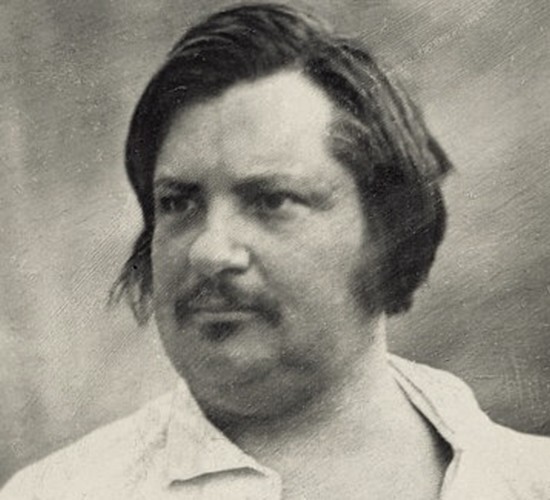Honoré de Balzac híres idézetei
Honoré de Balzac Idézetek az emberekről
Honoré de Balzac idézetek
„A férjet sohasem bosszulja meg senki olyan jól, mit a feleség szeretője.”
Neki tulajdonított idézetek
„A mesterkélt csinosság éppen olyan a valódi irányában, mint a paróka a haj irányába.”
Neki tulajdonított idézetek
„A művészek nagy gyermekek, kik, midőn teremtő szerszámukat megragadják, óriássá válnak.”
Neki tulajdonított idézetek
„Az asszony aki annyira elővigyázatlan, hogy rajtakapják, megérdemli a sorsát.”
Neki tulajdonított idézetek
„A művészet feladata nem a természet utánzása, hanem a kifejezése.”
Neki tulajdonított idézetek
Honoré de Balzac: Idézetek angolul
et Misères des courtisanes (The Splendors and Miseries of Courtesans) (1837-1847), part IV. La dernière Incarnation de Vautrin (The Last Incarnation of Vautrin) https://books.google.ca/books?id=ajtOAAAAcAAJ&pg=PA1&dq=Splendeurs+et+Mis%C3%A8res+des+Coutisanes+Sc%C3%A8nes+de+la+Vie+parisienne&hl=en&sa=X&ved=2ahUKEwiq69XJuJTvAhXrMlkFHcxvDVgQ6AEwCHoECAEQAg#v=onepage&f=falseSplendeurs, "Le Préau de la Conciergerie" ("The Courtyard of the Conciergerie") (chapter title).
Eredeti: (fr) Le crime et la folie ont quelque similitude. Voir les prisonniers de la Conciergerie au préau, ou voir des fous dans le jardin d'une maison de santé, c'est une même chose. Les uns et les autres se promènent en s'évitant, se jettent des regards au moins siguliers, atroces, selon leurs pensées du moment, jamais gais ni sérieux ; car ils se connaissent ou ils se craignent. L'attente d'une condamnation, les remords, les anxiétés donnent aux promeneurs du préau l'air inquiet et hagard des fous. Les criminels consommés ont seuls une assurance qui ressemble à la tranquillité d'une vie honnête, à la sincérité d'une conscience pure.
“A tear is a misfortune, a stain is a vice.”
Part III. Des Choses qui procèdent immédiatement de la personne (Things That Immediately Proceed the Person), Chapter V. De la Toilette dans toutes ses parties (Of the Toilet in all its Parts).
Treatise on Elegant Life (1830)
Eredeti: (fr) Une déchirure est un malheur, une tache est un vice.
Part III. Où mènent les mauvais Chemins (The Ends of Evil Ways), "Ce qu'est un Juge d'instruction pour ceux qui n'en ont pas" ("What a Judge Is for Those Who Do Not Have One") (chapter title).
Splendours and Miseries of Courtesans (1838-1847)
Eredeti: (fr) La loi est bonne, elle est nécessaire, l'exécution en est mauvaise, et les mœurs jugent les lois d'après la manière dont elles s'exécutent.
“Also, they had to forget both their misery and their thought which doubled the misery.”
Part II: Un grand Homme de province à Paris (A Great Man of the Provinces in Paris).
Lost Illusions (1837-1843)
Eredeti: (fr) Aussi tous avaient-ils besoin d'oublier et leur malheur et leur pensée qui doublait le malheur.
“A young man is to crime what a penny is to the X.”
The Atheist's Mass (1836)
Eredeti: (fr) Un jeune homme est au crime ce qu'une pièce de cent sous est au X.
Part I. Généralités (Generalities), Chapter I. Prolégomènes (Prolegomena).
Treatise on Elegant Life (1830)
Eredeti: (fr) Or les trois classes d'être créés par les mœurs sont :
L'homme qui travaille ;
L'homme qui pense ;
L'homme qui ne fait rien.
